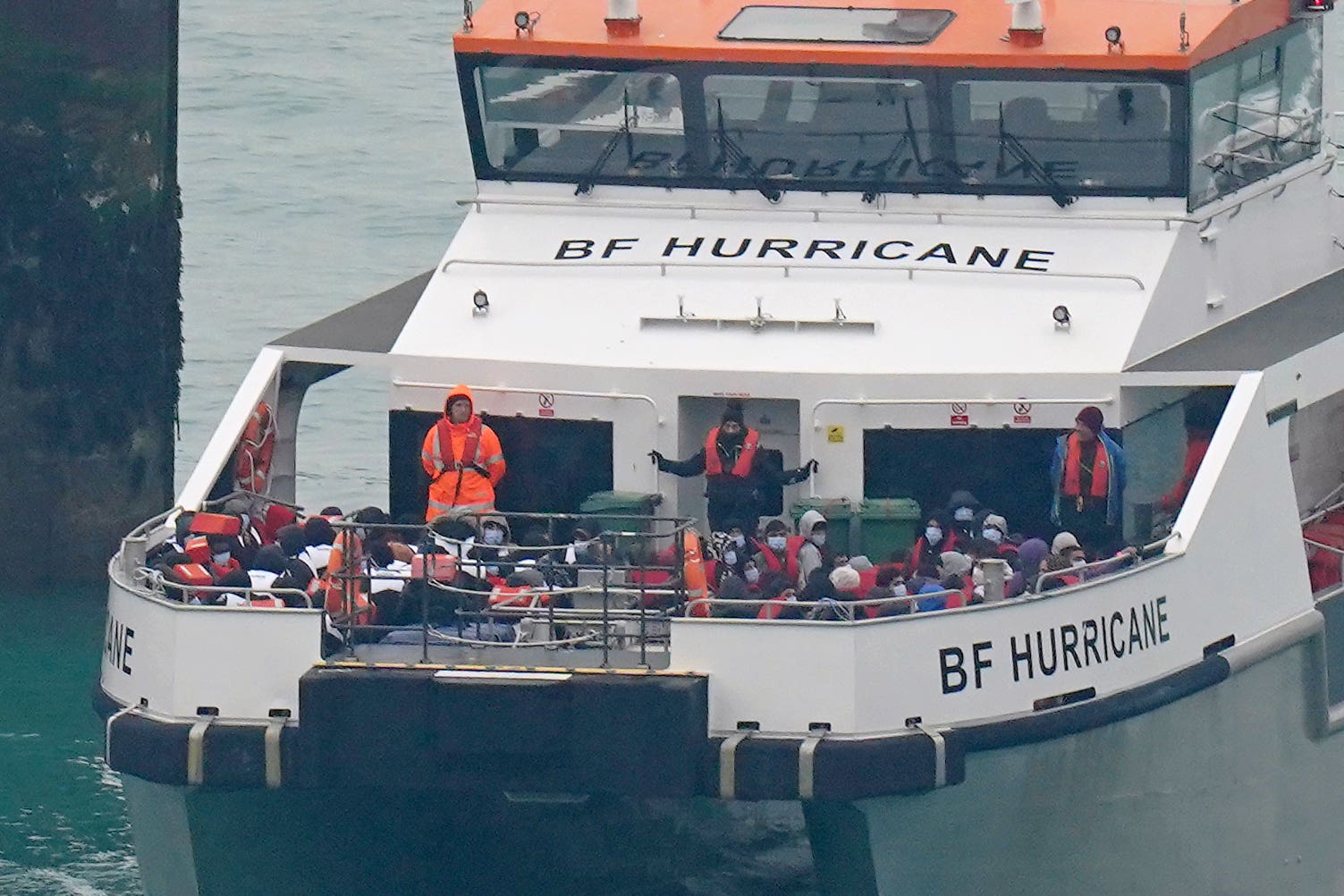UK asylum backlog hits new record of 160,000
The figure is 60% up from 100,564 for the same period in 2021.

Your support helps us to tell the story
From reproductive rights to climate change to Big Tech, The Independent is on the ground when the story is developing. Whether it's investigating the financials of Elon Musk's pro-Trump PAC or producing our latest documentary, 'The A Word', which shines a light on the American women fighting for reproductive rights, we know how important it is to parse out the facts from the messaging.
At such a critical moment in US history, we need reporters on the ground. Your donation allows us to keep sending journalists to speak to both sides of the story.
The Independent is trusted by Americans across the entire political spectrum. And unlike many other quality news outlets, we choose not to lock Americans out of our reporting and analysis with paywalls. We believe quality journalism should be available to everyone, paid for by those who can afford it.
Your support makes all the difference.The UK’s asylum backlog has topped 160,000 for the first time since current records began.
A total of 160,919 asylum seekers were waiting for an initial decision on their claim at the end of December.
This was up 60% from 100,564 for the same period in 2021 and the highest figure since current records began in 2010, Home Office figures published on Thursday show.
The number of people waiting more than six months for an initial decision was 109,641 at the end of 2022, up 77% year-on-year from 61,864.
It comes as the Home Office launched a plan to fast-track some asylum claims in a bid to cut the soaring backlog.
The move will see thousands of applicants sent a questionnaire, rather than automatically facing an interview, with the department warning that if they do not reply with the required information their asylum claim “could be withdrawn”.
In December Prime Minister Rishi Sunak pledged to reduce the asylum backlog by the end of 2023 as he vowed to “stop the boats” crossing the Channel.
The Home Office has about 10 months to clear 92,601 initial asylum claims which were in the system as of the end of June 2022.
The rising backlog is “due to more cases entering the asylum system than receiving initial decisions”, the Home Office said.
There were 18,699 initial decisions made on asylum applications last year, up 29% from 14,532 in 2021 but 10% below the 20,766 in the pre-pandemic year of 2019.
- Afghanistan
- Syria
- Eritrea
- Libya
- Yemen
More than three-quarters (76%) of initial decisions in 2022 were grants of refugee status, humanitarian protection or alternative forms of leave.
The Home Office said this was a “substantially higher grant rate” than in pre-pandemic years when around a third of initial decisions were grants.
The grant rate last year was the highest since 1990 when it was 82% – although the volume of applications was much lower at that time with 4,025 initial decisions made, compared with 18,699 in 2022.
About 12,000 people from Afghanistan, Syria, Eritrea, Libya and Yemen, who have applied for asylum in the UK and are waiting for a decision, will be eligible for the Home Office’s plan to speed up processing applications.
These applicants have been picked because they come from nations that typically have a high grant rate in the UK of more than 95%.
Asylum seekers subject to the process, which applies to adult applicants and their child dependants but not lone migrants under the age of 18, will not be automatically interviewed.
Instead, they will be sent a 10-page questionnaire with about 40 questions which may not all apply to them, and asked to return it within an initial 20 working days before being offered an extension.
Some campaigners criticised the plans as “clumsy” amid reports that asylum seekers will be told to fill out the form in English. Others welcomed efforts to reduce the backlog but said the approach could throw up more “bureaucratic hurdles”.
Applicants could still be called for an interview and any who do not provide the required information and evidence could have their claim rejected.
Those granted asylum will be allowed to work and will be expected to find their own accommodation.
Officials insisted the move was not an “asylum amnesty” and stressed thorough security checks will still be carried out.